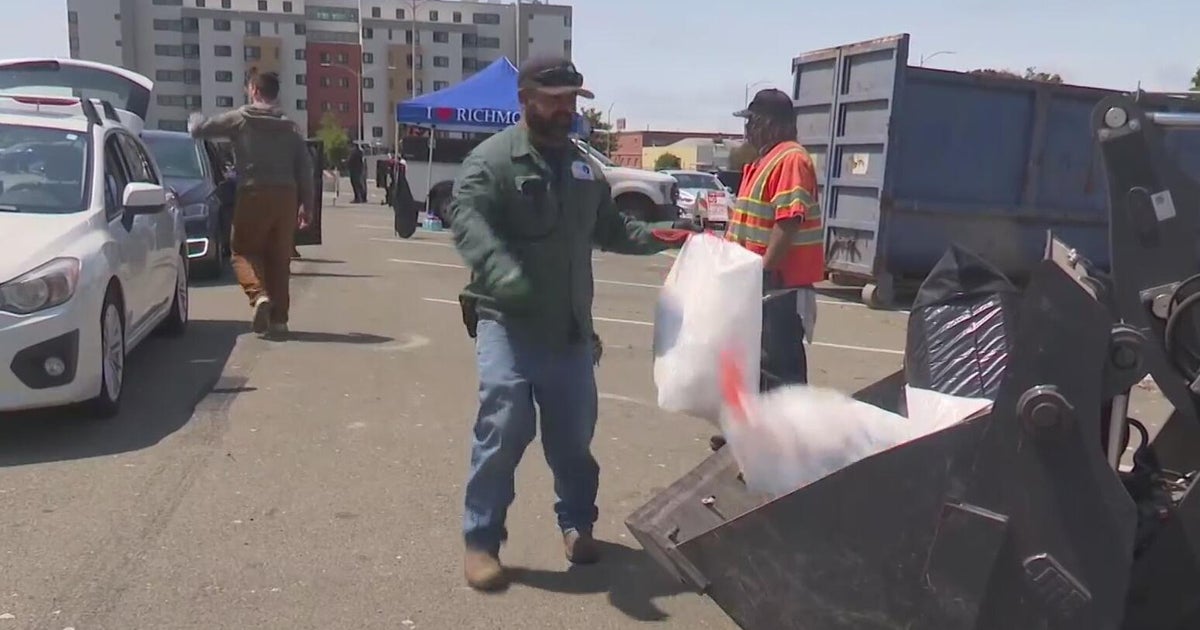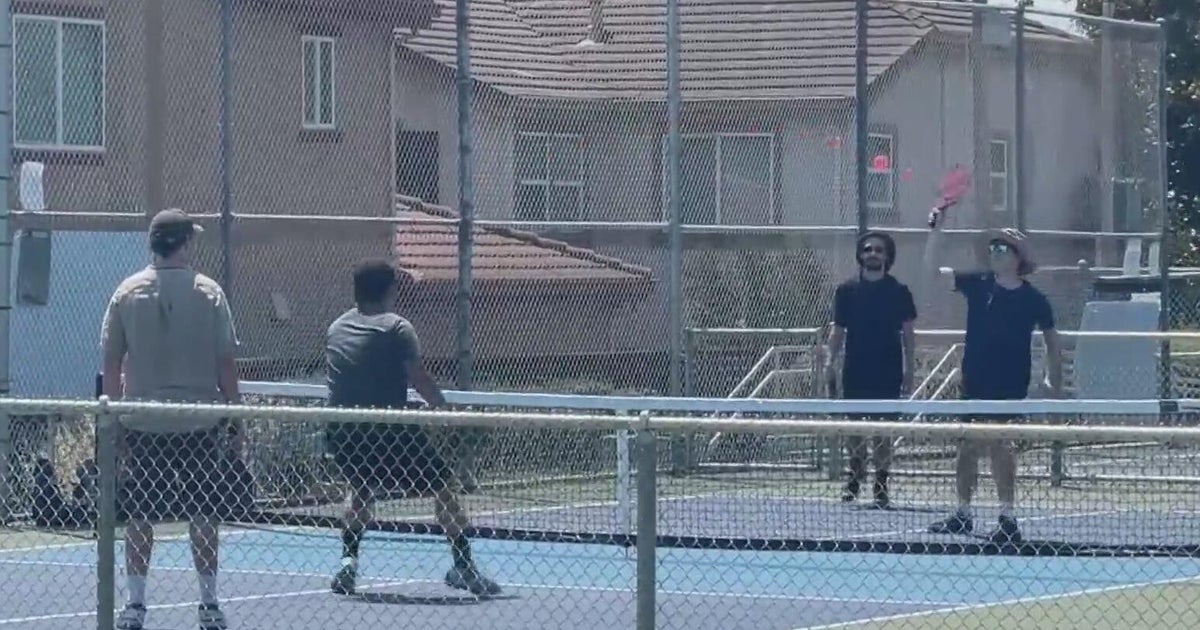Heavy Rain, Wind Batter The Bay Area With Much More Due Sunday
SAN FRANCISCO (CBS/AP/BCN) -- Steady rain and gusty winds swept over Northern California as the first band of what forecasters say will be biggest storm to slam the parched state in a decade began moving into the area Saturday.
- Forecast, Alerts, Doppler Radar
- Bay Area Storms: Full Coverage
- Where To Get Free Sandbags Around Bay Area
On Saturday morning, a flash flood watch was issued for San Francisco, to remain in effect through Sunday evening.
Later Saturday morning, the storm claimed at least one fatality when a middle-age woman was struck and killed by a falling tree at Canyon Lakes Golf Course in San Ramon.
Residents and officials cleared debris from drains and readied sand bags as they geared up for the massive storm expected to hit overnight with heavy rain and snow on already saturated soil, threatening to down trees and trigger flooding and mudslides.
At the luxury Post Ranch Inn in Big Sur, where clifftop rooms open to sweeping views of the Pacific Ocean, general manager Kevin Geanides said staff cleared debris from storm drains earlier in the week. On Saturday, guests packed into the restaurant with floor-to-ceiling windows or hunkered down in their cabins, enjoying the calm ahead of the massive storm.
"All of our rooms have fireplaces going and our guests are just hunkered down," Geanides said. "When we have storms like this there is a certain romantic element and our guests take advantage of it."
This storm is expected to bring as much as 15 inches of rain in some Northern California foothills communities in a very short time. No storm in the foothills the last 15 years has produced that much rain in three days, according to the National Climatic Data Center.
This stormy weather comes as California enters its sixth year of drought. Each storm is welcomed but officials say several more like this are needed to replenish depleted groundwater supplies.
The strong, wet season began in October with more rain falling than in three decades, mostly in Northern California. Los Angeles is experiencing the wettest winter in six years, forecasters say.
Forecasters anticipate the storm surge stretching from Hawaii in the Pacific -- called an atmospheric river -- could dump up to 8 inches of rain from Sonoma to Monterey counties.
The storm's mild temperatures will drive up the snowline to above 9,000 feet throughout the Sierra Nevada, causing runoff in the lower elevations, said Zach Tolby, a meteorologist with the National Weather Service in Reno.
"This is a classic set up for us for flooding," Tolby said. "We're definitely expecting a very wet weekend."
Flooding could rival the winter of 2005-2006 that sent 5 feet of water into the Sparks industrial area made up of warehouses and manufacturing plants. Crews worked to secure storage drums filled with hazardous materials to stop them from floating away as they have in past floods.
Rangers at Yosemite National Park closed all roads leading to the park's valley floor, a major attraction for visitors from around the world eager to view gushing waterfalls and gaze up at towering granite rock formations such as El Capitan and Half Dome.
A huge storm in 1997 flooded Yosemite Valley, closing the park for two months and washing out roads, lodging and campgrounds. This weekend's storm is not expected to be quite that severe.
The closure is expected at least through Sunday. Other parts of the park remain open, but rangers caution visitors to be aware of ice and falling debris on the roads.
Photographer and rock climber Josh Hilling who lives in the foothills below the park, spent recent days chopping wood and stocking up on groceries.
"If you live long enough in this canyon, you experience lots of natural disasters -- floods, fires, rock falls," Hilling said Friday from his family's home in El Portal.
The Truckee River, which flows from Lake Tahoe through Reno, is forecast to rise to its highest point in more than a decade, according to the weather service, which has issued a flood warning.
Another storm is forecast for next week and with the ground already saturated rain won't seep into the soil quickly enough and extra runoff could end up in already swollen rivers and creeks.
TM and © Copyright 2017 CBS Radio Inc. and its relevant subsidiaries. CBS RADIO and EYE Logo TM and Copyright 2017 CBS Broadcasting Inc. Used under license. All Rights Reserved. This material may not be published, broadcast, rewritten, or redistributed. The Associated Press and Bay City News contributed to this report



